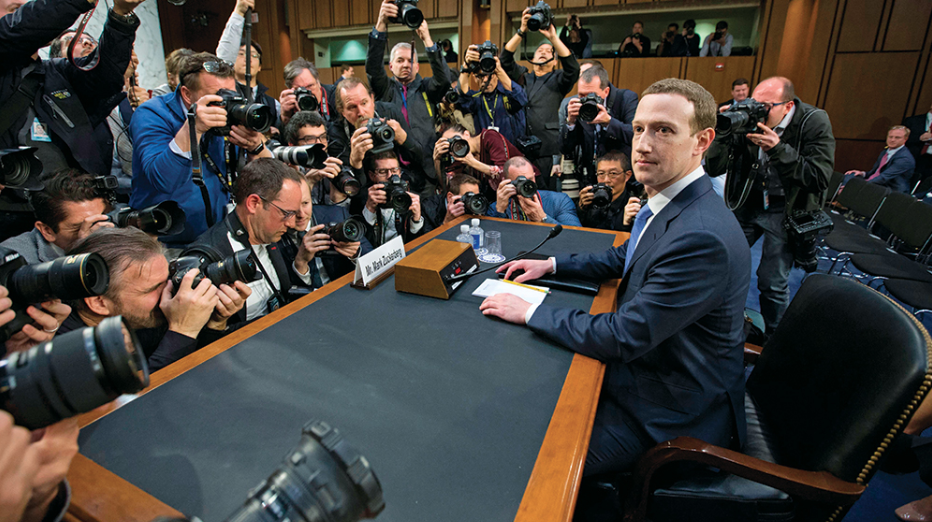
The tide of public opinion has finally turned against Big Tech. After years of amassing a globalized oligopoly and unfettered dominance over cyberspace, the behemoth technology companies seem poised to be subjected to the strictest regulatory scrutiny since the dot-com bubble burst in 2000-2001.
In anticipation of what is expected to be a flurry of lawsuits and legislative oversight, Twitter recently announced that it will start policing political advertisements, and Snapchat and Facebook are facing pressure to do the same. Meanwhile, the European Union antitrust commissioner recently announced plans to place the burden of proof on the Big Tech firms when embroiled in antitrust suits. On November 8, Assistant Attorney General Makan Delrahim cautioned the largest multinational tech corporations that the federal government will hold them accountable for their conduct on the usage of user data, including withholding access to other market entrants. Additionally, the House Judiciary Committee has launched a litany of probes into the business practices of the social media giants, and both the Democratic presidential candidates and President Donald Trump have sounded off against major social media companies’ market dominance and misuse of user’s data privacy.
As Washington and Brussels grapple with Silicon Valley, the legacy of broadcast regulation in this country illustrates that government red tape often strengthens rather than prevents monopolies. Nevertheless, social media giants have been labeling themselves both platforms and publishers simultaneously, in a brazen attempt to claim legal safeguards from both of these designations. Section 230 of the Communications Decency Act of 1996 legally immunizes online platforms from libel suits for their users’ slanderous, derogatory, or unlawful content. Congress gave these platforms this incredible exemption to enable the creation of a “forum for a true diversity of political discourse.” In an op-ed, Senator Ted Cruz (R-TX) wrote that “in order to be protected by § 230, companies like Facebook [wish to] be ‘neutral public forums.’ On the flip side, they [wish to] be considered to be a ‘publisher or speaker’ of user content if they pick and choose what gets published or spoken.” For example, when the app Six4Three sued Facebook, the tech giant asserted that it was a publisher and a platform in the same case. Essentially, Facebook wants to have its cake and eat it too.
While § 230 does qualify that platforms should not be held responsible for deleting any content that is “obscene, lewd, lascivious, filthy, excessively violent, harassing, or otherwise objectionable,” courts have held that “otherwise objectionable” does not mean whatever a social media company objects to, but “must, at a minimum, involve or be similar” to vulgarity, or predatory content. Political opinions, regardless of how fanatical or reprehensible, do not meet this standard.
The Internet Association, which represents the interests of Big Tech corporations, has asserted that § 230 is crucial for these firms to “provide forums and tools for the public to engage in a wide variety of activities that the First Amendment protects” including “facilitate speech and public discourse…allowing citizens to air their grievances, and…businesses and patrons to discover each other and to transact business with each other.” However, rather than facilitating a market of goods, services, and ideas, Silicon Valley now exploits § 230 to engage in censorship and the suppression of thought. For instance, YouTube recently demonetized the videos of conservative commentator Steven Crowder, even after admitting that he did not violate its policies.
It’s worth mentioning that since the Supreme Court reaffirmed that the First Amendment’s speech protections do not bind private entities, in Manhattan Community Access Corp. v. Halleck, some have claimed that social media companies are absolved of the burden of protecting free speech. However, this line of reasoning is specious at best considering the prodigal generosity of the legal immunity from libel suits granted to them by § 230, which has provided these platforms with a massive windfall of savings.
It’s time for the social media giants to decide. If they are platforms, they should have immunity from litigation. If they are publishers, then they should renounce this invaluable privilege. They cannot claim that § 230 immunity is necessary to protect free speech while they remove content, which some of their administrators or user might disagree with. As social media companies continue to suppress political content, lawmakers on Capitol Hill must craft legislation clarifying the social media’s status to preserve a free and open Internet.
Bobby Miller



